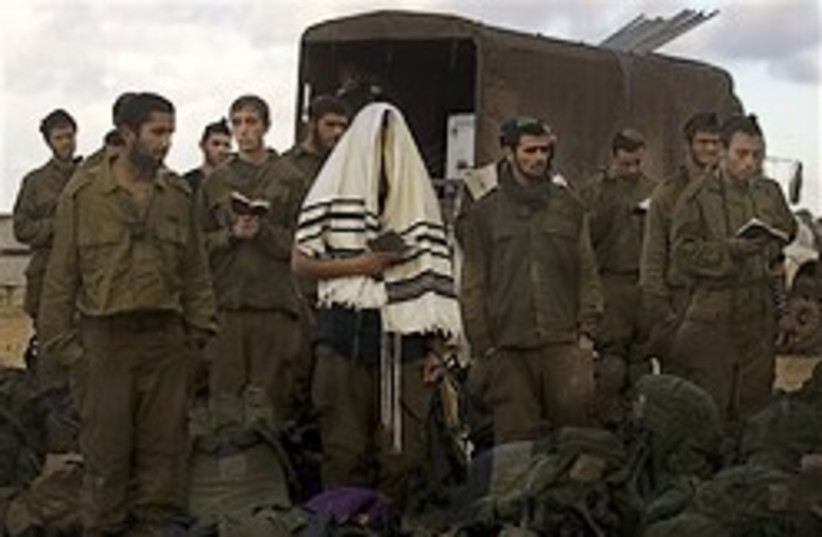When we speak of Abraham, the founder of our people and our faith, so many moments in his life stand out. The journey to the Holy Land, the welcoming of the angels, the defense of Sodom, the binding of Isaac – Abraham’s story is rich with acts of devotion to God and commitment to human justice and loving-kindness.
This week, as the Torah introduces us to our patriarch Abraham, what stands out is Abraham the warrior.
Abraham, upon viewing the harm that befell certain innocent states as well as the fact that his nephew Lot had been taken hostage, immediately recognizes the responsibility to wage war in order to right the evil perpetrated on society and to secure the release of the captives. Abraham’s loyalty to society and to his kin, even to the point of battling into the depths of the night in order to free Lot, sets an example for us in this trying moment.
The war between the four and the five kings marks the first account of warfare in Tanach, the Jewish bible, and Abraham’s entry into the battle gives the commentators an early opportunity to address the Torah’s view on military ethics – in anticipation of how such issues will be elaborated upon later in the Torah.
It is against this backdrop that the Pirkei d’Rabi Eliezer (Chapters of Rabbi Eliezer) makes a striking point in its recounting of the events of the war (#27). Abraham, looking back at the fighting that had taken place, is suddenly afraid. “Could it be,” he asks, “that I have just killed these people without just cause?”

God, in turn, responds by using language from this week’s haftarah (selection from Prophets relating to the Torah reading), interpreted by our sages as being a reference to Abraham. Elegantly reinterpreting Isaiah 41:3, at face value a description of a warrior returning home unscathed, the sages reread the verse as meaning that Abraham was saved not only from harm, but from wrongdoing. While he feared that perhaps he had killed innocent people along the way, God assures Abraham that he has not wrought any unjustified pain or death in the context of his war effort.
Sometimes, in a just war, collateral civilian casualties occur, an evil consequence that is permitted in war. One of the tragic costs of war. Yet Abraham is assured by God that he and his soldiers did not take deliberate aim at civilian targets.
That fear is real.
A soldier's prayer
Just last week, in the moments leading up to the onset of Shabbat, a group of combat soldiers came together to pray. One by one, each soldier was asked to share a specific prayer that they were carrying with them in these trying days. Some quite reasonably asked for safety from harm through the ravages of war and to be able to return home speedily and full in body and in spirit – a prayer we share with them in these difficult times. But the overwhelming majority of the soldiers, in this moment of honesty and vulnerability, shared that their greatest fear was of causing unnecessary harm or death to innocent civilians during the fighting.
Our soldiers, of mighty arms and loving hearts, joined with Abraham in the deep worry regarding the unavoidable collateral damage that comes with warfare, hoping at the very least to minimize the damage.
In the face of the Hamas-ISIS cult of death, our soldiers continue to value life.
As we continue to pray for the welfare of our armed forces while they take on the Hamas menace in the aftermath of the Simchat Torah massacre, we should be moved by their example. Like that of our father Abraham, our role as Jews, guided by morality – in complete contrast to that of our enemy – is that we not lose sight of what is humanity. And even while we recognize that our goal must be complete victory and the safety of our soldiers and our people – and nothing should stand in the way of that objective – we can still hold true to the tradition that innocent life has value.
The author, a rabbi, is president and rosh hayeshiva of Ohr Torah Stone, a Modern Orthodox network of 32 educational and social institutions and programs transforming Jewish life, learning, and leadership worldwide.
